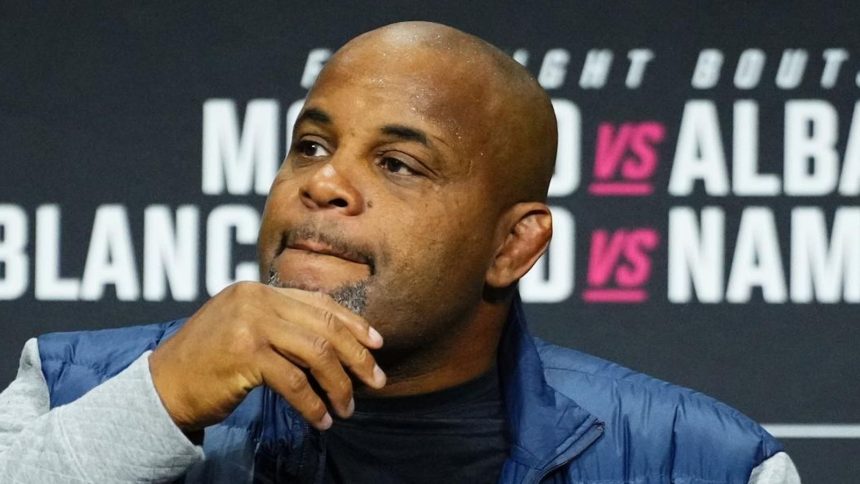Daniel Cormier, known for his candid commentary, recently dissected the career trajectory of Colby Covington, a UFC welterweight veteran whose controversial persona has become more prominent than his fighting prowess. Covington, once a rising star, has experienced a downturn in recent years, prompting questions about his future, especially as his antagonistic approach seems to be backfiring. Cormier highlighted Covington’s shifting stance on Jon Jones, the UFC heavyweight champion, using past interviews as evidence. Early in his career, Covington spoke fondly of Jones, even referencing their collegiate friendship. However, as Covington cultivated his “bad guy” image, his rhetoric towards Jones turned vitriolic, filled with accusations and insults. This stark contrast underscores the calculated nature of Covington’s persona and raises questions about its authenticity.
Cormier argues that Covington’s aggressive personality, while initially attracting attention, becomes a liability when performance declines. The “bad guy” gimmick, effective during a winning streak, draws intense scrutiny and schadenfreude from detractors when losses accumulate. Covington’s recent record reflects this vulnerability. Having lost four of his last six fights, the 37-year-old finds his high-energy, wrestling-centric style less effective against top-tier competition. His verbal attacks on prominent fighters like Kamaru Usman, Leon Edwards, and Jon Jones, while generating buzz, now seem hollow as these rivals maintain their dominance while Covington’s star fades.
This shift in fortune presents a dilemma for Covington. His established persona, built on confrontation and trash talk, leaves little room for graceful retreat. While a change in demeanor might mitigate some animosity, it would also betray the very identity he meticulously constructed. Covington’s career now hinges on whether he can recapture his earlier success and silence his critics or adapt his persona to his new reality. The challenge lies in balancing the need to attract attention with the risk of alienating fans and fellow fighters. His future depends on navigating this delicate balance while facing the physical realities of aging in a demanding sport.
Cormier’s analysis doesn’t simply critique Covington’s methods; it explores the broader dynamics of persona and performance in combat sports. He acknowledges the value of a strong personality in attracting viewership, even encouraging it to some degree. However, he emphasizes that sustained success is ultimately the foundation upon which such a persona can thrive. Without victories to validate the bravado, the carefully constructed image crumbles, leaving the fighter exposed to the backlash of a now-hostile audience. Covington’s case serves as a cautionary tale, illustrating the precarious nature of relying solely on a manufactured persona without the consistent performance to back it up.
Covington’s predicament is further complicated by the aging process. His fighting style, heavily reliant on relentless wrestling and cardiovascular dominance, demands peak physical condition. As he enters his late thirties, maintaining that level of output becomes increasingly difficult, especially against younger, equally driven opponents. This physical decline exacerbates the problems created by his aggressive persona. Each loss amplifies the voices of his detractors, while his diminished physical abilities limit his ability to respond effectively inside the Octagon. The confluence of these factors paints a challenging picture for Covington’s future.
The question remains: how will Covington navigate this precarious juncture in his career? Will he double down on his antagonistic approach, clinging to the persona that brought him initial fame? Or will he attempt to reinvent himself, acknowledging the changing landscape of his career and the dwindling effectiveness of his current strategy? This crucial decision will determine whether Covington can reclaim a prominent position in the welterweight division or fade into obscurity, burdened by a persona that has outlived its usefulness. The coming months will reveal whether Covington can adapt and evolve or if he will become another cautionary tale of a fighter who let his persona overshadow his performance.



